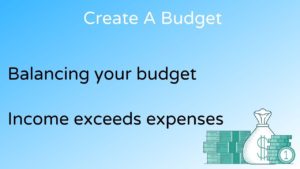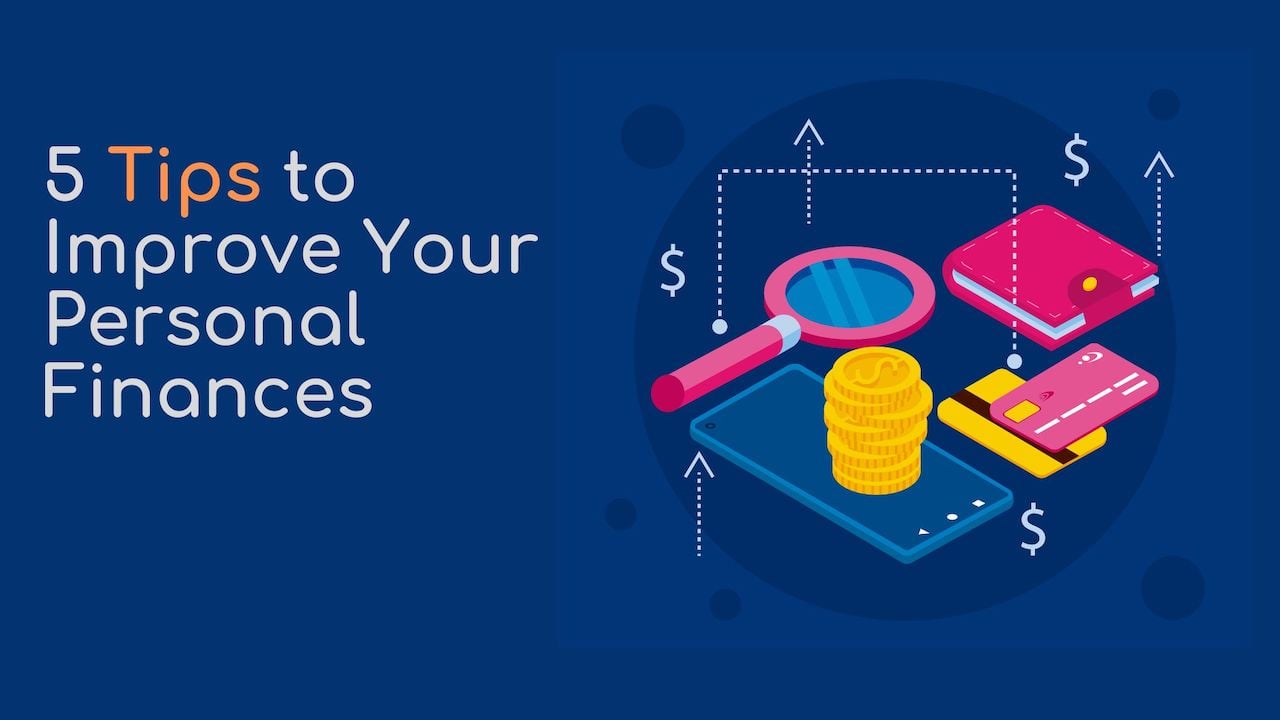Personal Finance 101: 5 Tips to Improve Your Personal Finances
Disclosure: This post may include affiliate links and images that we may receive compensation if you click on the link and purchase, at no cost to you.
Updated 16/12/2022
Personal financial planning is one of the most important factors to create a financial roadmap, which ensures you follow the right path toward financial freedom.
Those basic personal financial planning such as saving for retirement, budgeting, insurance, income, and expenses as well as financial goals.
In this case, you might not need a personal financial advisor in the field, if you know how to manage your personal finance in a basic way, where income exceeds expenses.
These financial concepts seem to be easy to understand, but they may require personal discipline and a commitment to weather through the good and bad times of your financial roller coaster life.
For this reason, an average person without expertise and knowledge in the finance field can also do a great job managing the day-to-day budget, and be able to reach their personal finance goals if they are committed to following the financial road map that they set for themselves.
1. Stay Out Of Debt.
2. Create A Budget.
3. Set Financial Goals.
4. Read Personal Finance Books.
5. Read Personal Finance Blogs.
Key Takeaways
Table of Contents
- Continue to improve knowledge and skill in personal finance, which can help to become self-sufficient with money.
- Personal finances are all about staying out of debt, setting financial goals, and getting familiar with phenomenon terms and other successful people’s viewpoints.
Here are additional readings that are relevant to budgets and saving money, you should continue to read for more information:
> Best Budget Apps to Save Money for 2022
> 5+ Best Free Google Sheets Monthly Budget Templates
1. Stay Out Of Debts
The first and foremost important step in personal finances is to avoid unnecessary debts. In particular, you must ensure that you can avoid the impact of too many debts such as luxury car loans because those debts can have a big impact on your path to achieving your financial goals.
This is because having too many debts such as credit card debt, car loan debt, mortgage, and personal loan debt can have a negative influence on your spending behaviors.
For example, credit card debt is a real shark to eat up a large part of your income because of a high-interest rate of 15%- to 17% out of $10,000. Then you must pay the bank an interest fee of around $1500 to 1700. And, If you missed a payment on a due date, then you will end up receiving a bad credit score.
Taking on some debts is either good or bad if you know how to manage your debt in an effective way. This is because you use a credit line to help you acquire a potential property or pay for equipment that can generate extra income. Those are considered good debts because you have the ability to pay back loans and debts.
However, those credits or debts could destroy your financial strength for the following reasons:
- Unable to pay off the debt or default, which will have serious consequences on your credit score. As a result, it makes it even more difficult to apply for other loans later.
- Using credit or debt to fulfill your personal wants such as buying an expensive car is considered bad debt because it may not generate any income in the future.
For this reason, you should always think twice before taking on any debts and loans, and consider whether those loans can generate some cash flow in the future.
One of the most efficient ways to manage your debt is to pay more than the minimum debt requirement due each month as it helps to reduce a high-interest rate over time.
2. Create A Budget

When it comes to basic personal finances, the first thing to do is to create a successful budget, which is in accordance with your current financial situation.
Creating a successful budget will act as a guideline to manage your income and expenses in a positive way- income exceeds expenses. It provides a clear road map for identifying how much you would spend per month.
Based on the detailed and written budget, helps you to set a direction to manage your money in a smarter way, which will be good for your personal finances.
For example, you would pause and think before making any purchases if those purchases have any negative impacts on your monthly budget. And, if you want to go ahead with any purchases then you may plan to reduce spending elsewhere.
With a successful budget, you will definitely know how much you would spend within a month, and if there is leftover money, then you can pay off a credit card debt, a personal loan debt, or even use it to invest in other income channels such as stocks, CDs, high yield saving accounts.
Traditionally, you only need a piece of paper to create a list of income and expenses, and then you can create a budget based on those numbers. Another option is to use budgeting apps to manage your day-to-day spending like Truebill, and Trim.
Those apps act as a reminder to keep you on track of your personal finances, and they may alert you if you are overspending.
Importantly, take time to try different methods of budgeting in order that you can figure out the best budgeting approach to suit your needs and style.
Related reading: Best Budgeting Tools for Millennials in 2023
3. Set Financial Goals
Before taking action, you should get familiar with the way how to successfully create financial goals. This is because financial goals will roll out a clear road map for you to reach your personal destination in the future.
In particular, successful goals play a key role to create and manage your budget in order that you can have surplus money to invest in other income assets such as properties, or shares.
In addition, financial goals help you to create a step by step action plans, which ensure you can walk calmly towards the path of your destination. Based on the goals, you would be able to identify how much money you would save each year, and motivate you to find ways to improve your earning capability.
Create financial goals that might act as a motivator or inspirator to support you along the way of achieving your final goals.
4. Read Best Personal Finance Books
If you are determined to improve your personal finance, then reading books on personal finance is one of the vital actions that will enhance and accelerate your knowledge over time. In particular, you will have a chance to learn great tips, advice, and principles from the best people in the field.
And there are many great books that talk about money, investing, and career advancement. The only thing you need to do is to take time to do research and figure out the best books, which can improve your knowledge and skill over time.
Importantly, an average person reads about 4 hours a week, and you should try to read at least 4 or 6 hours minimum each week in order that you can constantly improve your knowledge and money skill in the field of personal finances over time.
The following books about personal finances and money that you should get at least one on your bookshelf. Those books mainly talked about financial concepts such as personal finance basics, investing, and saving.
- The Total Money Makeover– Best for creating good money habits.
- The Millionaire Next Door – Best for personal wealth management and learning the habit of other rich people.
- Why They Didn’t Teach Me in School – Best for college and university graduates as well as a good foundation for beginners.
- Rich Dad and Poor Dad– Best for beginners to manage money and manage cash flow.
5. Read Personal Finance Blogs
If you are committed to improving your personal finance knowledge, then there are a ton of incredible sources and activities, such as reading the CNBC blog, listening to podcasts, and attending personal finance seminars.
By engaging and learning, your personal finance knowledge and skill will be improved from time to time as you will become smarter with money and investing.
In addition, you will have an opportunity to expand your knowledge by adopting great viewpoints and tips from others. Those authors have done their hard-worked to dedicate their research and put up content for you to learn.
When it comes to selecting the right financial blogs, take time to search around and figure out the best personal finance blog to suit your needs and style. This is because finding the right personal finance blog may help to accelerate your knowledge in the field faster.
A small step from the action plan can take a big yield to becoming self-sufficient with money as it may help to increase the chance to reach your financial goals in both the short and long term.
Don’t forget to share and Join us at Jns-millennial.com for more tips.
By Jiro Nguyen.
The content is only based on the author’s personal opinion and experience. It is for informational purposes only, and it does not rely on as a comprehensive or a substitute for professional advice.
